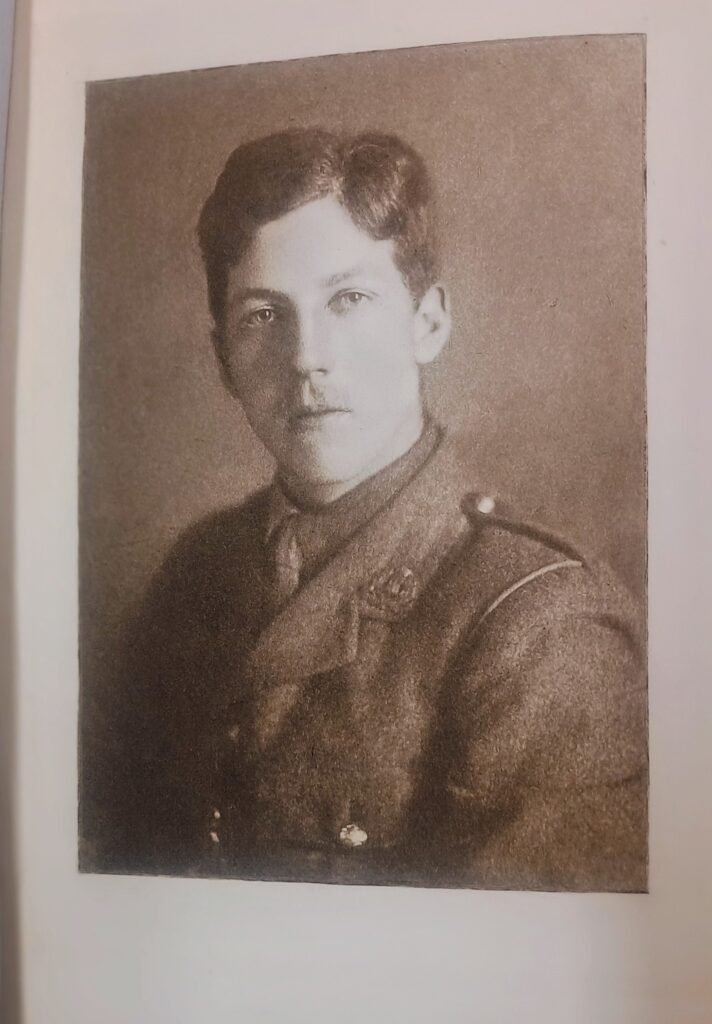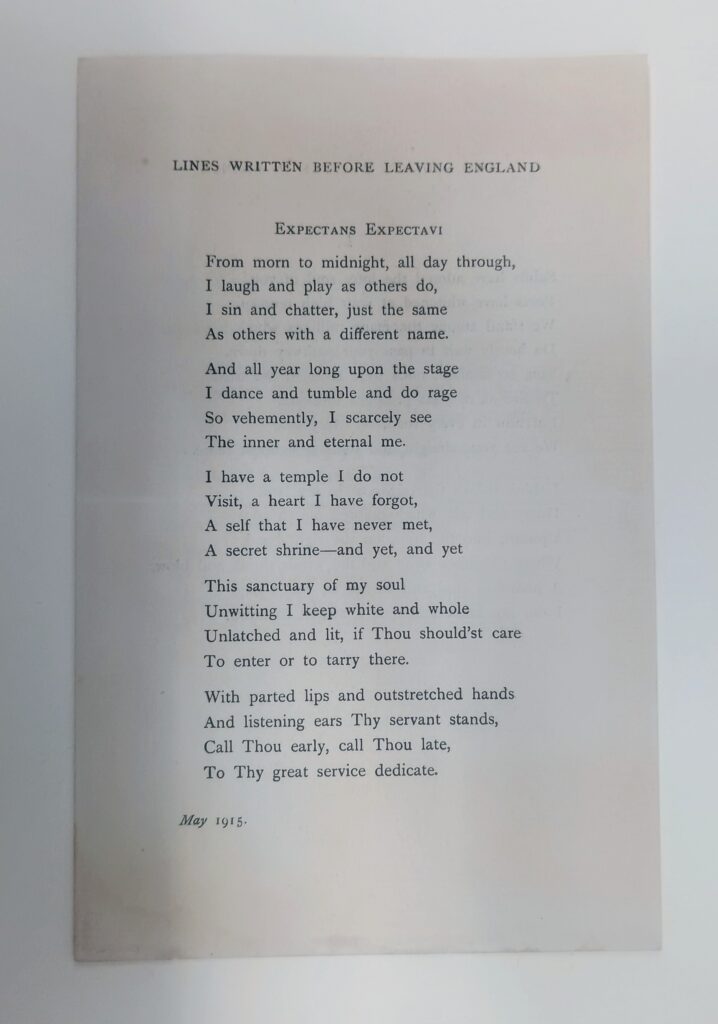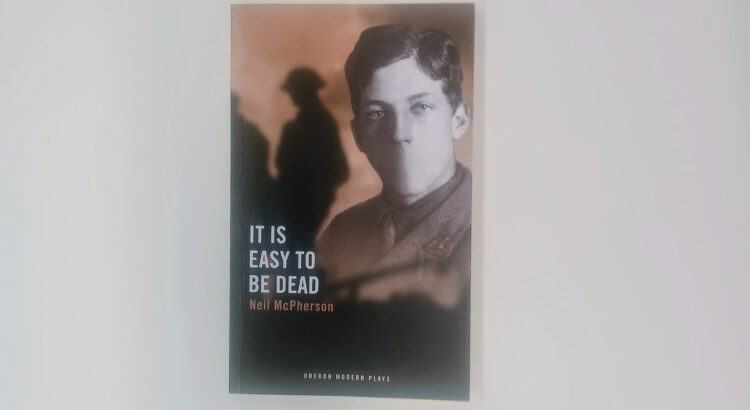I am posting this on the 11th hour of the 11th day of the 11th month of 2025 to pay tribute to Charles Hamilton Sorley, Scottish war poet.
It is just over 110 years since Charles Hamilton Sorley was killed by a sniper’s bullet at the Battle of Loos on 13th October 1915 aged twenty. Robert Graves in “Goodbye to all that” (1929) said that Sorley was “one of the three poets of importance killed during the war”, the other two were Isaac Rosenberg (1890-1918) and Wilfred Owen (1893-1918). A posthumous collection of his work “Marlborough and other poems” (1916) was a critical and commercial success and Sorley is one of the Great War poets commemorated in Westminster Abbey’s poet’s corner.
His relatively small published output includes one of the greatest and most moving of the poems written about the war, “When you see millions of the mouthless dead” (1915). It was found in his pocket after his death.
When you see millions of the mouthless dead
Across your dreams in pale battalions go,
Say not soft things as other men have said,
That you’ll remember. For you need not so.
Give them not praise. For, deaf, how should they know
It is not curses heaped on each gashed head?
Nor tears. Their blind eyes see not your tears flow.
Nor honour. It is easy to be dead.
Say only this, “They are dead.” Then add thereto,
“Yet many a better one has died before.”
Then, scanning all the o’ercrowded mass, should you
Perceive one face that you loved heretofore,
It is a spook. None wears the face you knew.
Great death has made all his for evermore.

Charles Hamilton Sorley was born on 19th May 1895 in Old Aberdeen. His father was William Ritchie Sorley, a philosopher and academic, his mother Janetta was the daughter of Edinburgh journalist George Smith. In 1908 he won a scholarship to Marlborough College where he started to write poetry. Just before the outbreak of the first World War he was studying in Germany at the University of Jena. When war broke out he returned to England and enlisted in 1914. He joined the Suffolk Regiment and was sent to the Western Front in France in May 1915.

It was generally thought that Sorley’s poetry was not collected into book form until after his death. We recently acquired a slight but important collection of Sorley’s poems that suggests this might not have been the case. Above is the front page of a leaflet that collects three of Sorley’s poems that were written in May and June 1915, just months before his death. Sorley is not named in the leaflet, it is credited to C.H.S. (7th Suffolks). It seems to have been published by Sorley’s family. In a letter written soon after her son’s death Sorley’s mother Janetta says her husband William is arranging a reprint of their son’s poems that will include a newly discovered poem called “XXVIII”. This poem is not included in the leaflet we have, which strongly suggests that it was published before Sorley’s death.
The leaflet poignantly entitled “Lines written before leaving England” therefore would seem to be Sorley’s first standalone publication and the only one to be published in his lifetime. Sorley of course would never return to England.
Perhaps because he died so young and relatively early in the war Sorley is not as well known as Wilfred Owen and Siegfried Sassoon. John Masefield said he was “potentially the greatest poet lost to us in that war”. Neil MacPherson wrote a play “It is easy to be dead” based on Sorley’s life, poems and letters which had its premiere on 15th June 2016. The cover of the script is at the top of this blog. In 2018 composer James Macmillan set Sorley’s words to music in the oratorio “All the hills and vales along”. Critic and novelist Anthony Quinn took the title of his critically acclaimed novel “The mouthless dead”(2025) from Sorley’s most famous poem. Sorley’s life and work haunts the culture, never quite in the foreground but always somewhere in the background. His work once encountered is difficult to forget.
You can read Sorley’s publications including the leaflet “Lines written before leaving England” at the National Library of Scotland. His poems also feature in most collections of poetry of the Great War.
